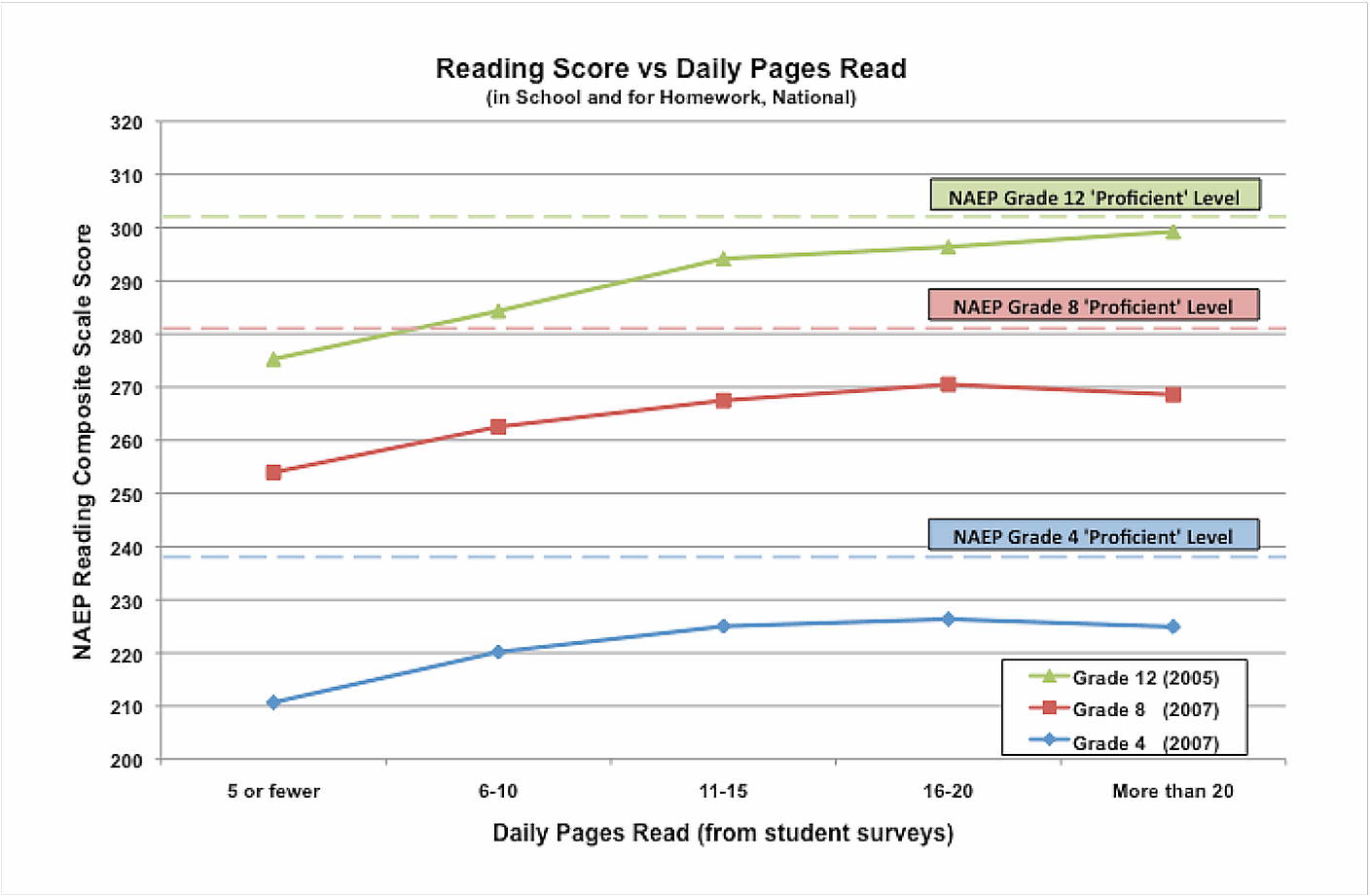Does Reading Practice Go With Reading Performance?
Why is this question important? A frequently asked question asked by, teachers, students, and parents is how much reading practice gives the most benefit for students. Discovering the relationship between reading test scores and number of pages read each day for school starts to get at this question.
See further discussion below.

Source(s): Test Scores and Daily Pages Read – National Assessment of Educational Progress (NAEP), National Center for Education Statistics (NCES), http://nces.ed.gov/nationsreportcard/naepdata/dataset.aspx (NAEP Reading Composite scale score, National, Grade 12 (2005), Grades 4, 8 (2007), Factors Beyond School, Time use outside of school, Pages read in school and for homework)
Result(s):
- Generally, more reading reported (up to 20 pages per day in fourth and eighth grades and more than 20 pages per day in twelfth grade) related to higher reading test scores.
- This, or course, doesn’t necessarily mean that the additional reading caused the higher test scores.
- All of the scores were below the NAEP proficient achievement levels for each grade.
- Of the three grades, twelfth graders who reported reading more than 20 pages per day came closest to meeting the proficient level.
- Note that the number of pages read were from student survey answers, not independent observations.
Implication(s): Generally, more reading means higher test scores. More specifically:
- The highest-achieving fourth and eighth graders said they read between 16 and 20 pages per day for school.
- The highest-achieving twelfth graders said they read more than 20 pages per day for school.
- There was a gap between the reading scores and NAEP proficiency standards at all three of these grade levels.
Author(s): National Center for Education Statistics, Institute for Education Sciences
Publisher(s): National Center for Education Statistics, Institute for Education Sciences, U.S. Department of Education
Study Description: The analysis compared student survey data on daily pages read for school obtained from the National Assessment of Educational Progress (NAEP), Data Explorer and the reading test scores achieved by these students.
Citation: http://nces.ed.gov/nationsreportcard/naepdata/dataset.aspx
NAEP Reading Composite scale score, National, Grade 12 (2005), Grades 4, 8 (2007), Factors Beyond School, Time use outside of school, Pages read in school and for homework)
